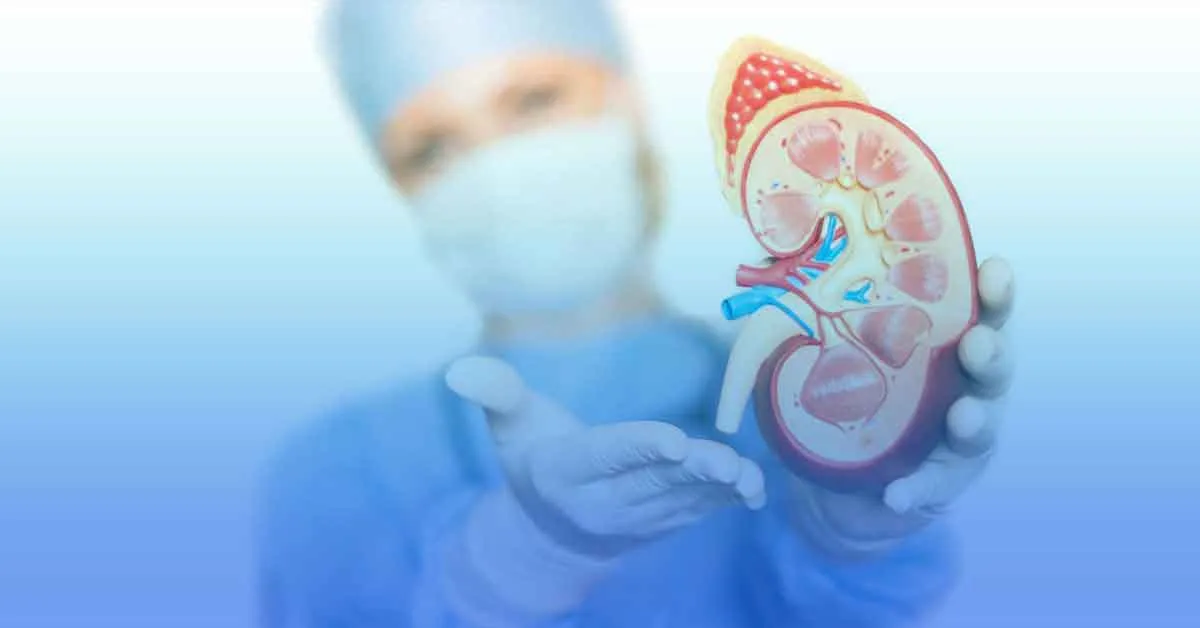Managing kidney failure requires a thorough understanding of the condition and access to effective treatments. Top hospitals in India offer advanced medical solutions to restore kidney function and enhance quality of life for patients.
This article covers essential aspects of kidney failure, including its causes, symptoms, diagnostic procedures, and treatment options available to patients in India.
Understanding Kidney Failure
Kidney failure, or renal failure, occurs when the kidneys can no longer filter waste from the blood effectively. This condition can be sudden (acute) or develop over time due to chronic conditions. The kidneys are vital in removing toxins, maintaining fluid and electrolyte balance, and regulating blood pressure. When kidney function is compromised, harmful substances accumulate in the body, leading to various health complications.
Chronic kidney disease often develops over many years, typically due to long-standing conditions like diabetes, hypertension, or other kidney-related issues. Acute kidney failure arises suddenly and requires immediate medical intervention. Both types demand prompt attention to prevent further deterioration and complications.
Causes of Acute Kidney Failure
Acute kidney failure (AKF) can result from several factors, including:
- Reduced Blood Flow to the Kidneys: Caused by infections, dehydration, low blood pressure, and certain medications.
- Urine Flow Blockage: Conditions like kidney stones, prostate enlargement, or bladder cancer can obstruct the urinary tract, affecting waste expulsion.
- Direct Kidney Damage: Severe infections, autoimmune disorders, or toxins can harm the kidneys’ internal structure, leading to AKF.
Identifying the underlying cause is crucial in selecting the appropriate treatment. For example, managing kidney stones that obstruct urine flow may ease acute symptoms, whereas complex causes may require prolonged care and monitoring.
Symptoms of Kidney Failure
Common symptoms associated with acute kidney failure include:
- Sharp pain in the lower back
- Reduced urine output
- Swelling in the feet and ankles
- Fatigue and drowsiness
- Difficulty breathing
- Nausea, confusion, and, in severe cases, chest pain
In chronic kidney failure, symptoms are often less noticeable initially, appearing only after significant kidney function loss. Symptoms may include muscle cramps, dry or itchy skin, and high blood pressure.
Diagnosing Kidney Failure
Accurate diagnosis is essential for effective kidney failure treatment. Leading hospitals in India conduct comprehensive diagnostic procedures under the guidance of experienced nephrologists, which include:
- Blood Tests: Measure creatinine, urea, and electrolytes to assess kidney function.
- Urine Analysis: Detects proteins and electrolyte imbalances, indicators of kidney issues.
- Imaging Tests: Ultrasounds, CT scans, and MRIs help visualise kidney structure and identify obstructions.
- Biopsy: In some cases, kidney tissue is examined for signs of damage, inflammation, or infection.
Treatment Options for Kidney Failure in India
Leading hospitals like BLK Max Super Speciality Hospital offer effective kidney failure treatments in India. Patients benefit from the latest protocols that address both acute and chronic kidney conditions. Key treatments include:
Medication Management
- Purpose: Control symptoms, slow kidney failure progression, and prevent complications.
- Options: Medications to manage blood pressure, control electrolyte levels, and reduce fluid retention. For chronic kidney disease patients, medications may address underlying conditions like diabetes or autoimmune disorders.
Kidney Dialysis
- Purpose: Used in severe cases when kidney function is significantly impaired.
- Types: Haemodialysis filters blood externally, while peritoneal dialysis uses the body’s lining as a filter.
- Goal: To remove toxins and reduce kidney strain until recovery or a transplant is needed.
Dietary Modifications
- Purpose: Support kidney function and manage symptoms.
- Plan: A diet low in potassium, sodium, and phosphorus is often recommended, with high-protein foods limited to reduce kidney strain. Maintaining balanced hydration is essential for electrolyte stability without overloading the kidneys.
Surgical Intervention (for Blockages)
- Purpose: Relieve urinary tract obstructions that may worsen kidney function.
- Options: Depending on the cause, surgeries or minimally invasive procedures can restore normal urine flow. For severe kidney stones or an enlarged prostate, surgery can prevent further complications.
Kidney Transplantation
- Purpose: Recommended for patients with end-stage kidney failure when other treatments are insufficient.
- Procedure: Replaces the failing kidney with a healthy donor kidney, offering long-term relief and significantly improved quality of life for eligible patients.
Prevention and Risk Factors of Kidney Failure
Preventive care is essential in managing acute kidney failure. Recommendations include:
- Maintaining a healthy diet and lifestyle with fibre, fruits, and vegetables.
- Staying hydrated and avoiding excessive use of non-prescribed medications, especially pain relievers.
- Regularly monitoring blood pressure and blood sugar, particularly for diabetics or those with hypertension.
- Scheduling routine check-ups for early diagnosis and better kidney health management, especially for high-risk individuals.
Complications of Untreated Kidney Failure
If untreated, kidney failure can lead to complications such as:
- Fluid accumulation in the lungs, causing breathing difficulties.
- Electrolyte imbalances that lead to muscle weakness, cramps, or even heart rhythm issues.
- Permanent kidney damage, requiring lifelong dialysis or a transplant, impacting overall quality of life.
Know more about : Dietary Changes You Can Make To Improve Your Kidney Health
Conclusion
Effective kidney failure treatment in India is possible with specialised care from top hospitals. Patients benefit from advanced treatment options and personalised care. Early diagnosis, preventive care, and adherence to medical advice are essential to managing kidney health and avoiding further complications, helping patients achieve a better quality of life.
